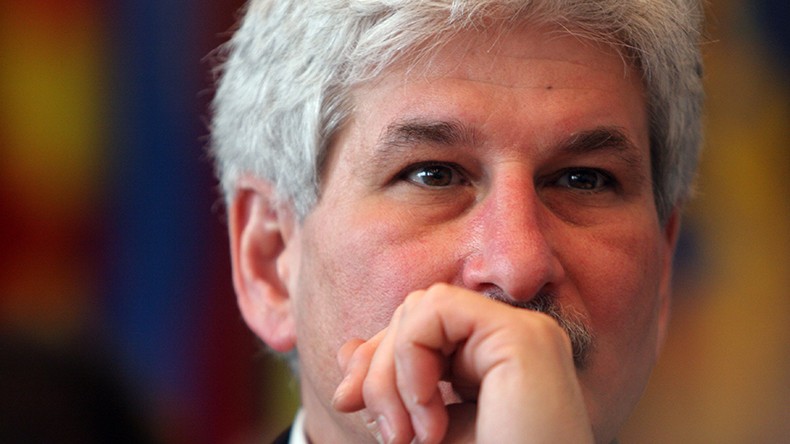
US diplomat on why Kazan negotiations failed
“Why has peacemaking in the Karabakh conflict failed?” Retired US diplomat, Philip Remler who served with the US Department of State and the Organization for Security and Co-operation in Europe (OSCE) tried to answer that question in his report published on the International Peace Institute (IPI) website.
Remler, who has served as Head of the OSCE Mission in Moldova during 2007-2012, used information obtained from interviews and meetings of the parties of negotiation, as well as information published by other authors and publicized statements for his analysis.
The author writes about diplomacy during the war, the development of OSCE Minsnk Group, the four secret meetings of Presidents Robert Kocharyan and Heydar Aliyev in 1998-2001, the process following failed Key West negotiations, meetings of Foreign Ministers Vardan Oskanian and Elmar Mammadyarov, about official presentation of 2005-2007 Madrid principles to Armenia and Azerbaijan and other interesting facts.
“After the [Kazan] meeting the sides traded accusations. Armenian Foreign Minister Nalbandyan accused the Azerbaijani side of reopening supposedly closed issues. The charge may be true, as it meshes with Mammadyarov’s accusation that the real problem was inflexibility and maximalism on the Armenian side. In any case, Mammadyarov had previously made the same charge of reopening closed issues against the Armenians,” Remler writes about Kazan negotiations.
“Meanwhile, Russia replaced its long-serving negotiator Merzlyakov with Igor Popov. Apparently the story of Popov’s appointment broke in the Armenian press on February 23, 2010, before the Russian Ministry of Foreign Affairs had informed Popov, who was then Russia’s ambassador to Mozambique. When the press contacted him, his office answered, “The ambassador...said that there has been some mistake. He has no connection with the OSCE Minsk Group and was surprised by this information.” In April, after Popov accepted his fate, the co-chairs visited the region,” the author writes about current OSCE Co-Chair, Igor Popov’s appointment.
In his report, the author also touches upon the most important episodes of the negotiations on Nagorno Karabakh conflict from 1987 until 2012, when Kazan negotiations failed.
“Germany, which is currently chairing the OSCE and is also part of the OSCE Minsk Group in its own right, should take the initiative and invite the foreign ministers of Armenia and Azerbaijan for talks to Berlin. It is a necessary step to help the parties reduce tensions and regain trust. German Foreign Minister Frank-Walter Steinmeier could also engage in shuttle diplomacy between Baku, the Armenian capital, Yerevan, and the Nagorno-Karabakh capital, Stepanakert,” writes another author, Stephanie Liechtenstein in an article https://theglobalobservatory.org/2016/05/nagorno-karabakh-armenia-azerbaijan-osce/ also published on the International Peace Institute (IPI) website.
http://www.panorama.am/am/news/2016/05/16/%D4%BF%D5%A1%D5%A6%D5%A1%D5%B6-%D4%BC%D5%82%D5%80/1580230
Newsfeed
Videos






























